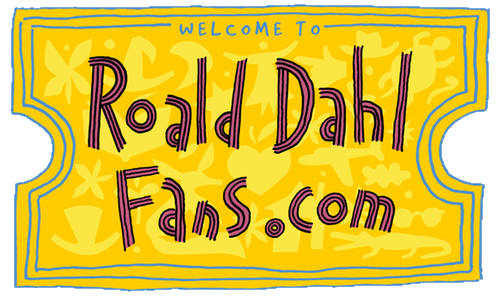If the Gremlins never reached the big screen, the experience certainly made Dahl’s name as a writer. By the fall of 1944 he had a literary agent, Ann Watkins, and he had published a number of stories in American magazines: “Shot Down Over Libya” in The Saturday Evening Post; The Gremlins serialised in Cosmopolitan and in book form; “The Sword” in The Atlantic Monthly; “Katina” and “Only This” in the Ladies’ Home Journal; and “Beware of the Dog” in Harper’s. While Dahl, like any young writer, was trying out styles, he was also making sure each story contained some overt propaganda for the War effort. It’s also worth noting (in light of Dahl’s later career) that two of these stories – The Gremlins and “Katina” – either featured or were written for children.
In 1945 Dahl moved back home to Amersham, England to be near his mother, Sofie. He enjoyed the rustic country life, making friends with some of the working-class men in the village. Among them was a butcher named Claud Taylor, who would later be immortalized in the “Claud’s Dog” series of stories. Meanwhile, in 1946 Reynal and Hitchcock published Over to You, a collection of Dahl’s war stories. It was released in England soon after by Hamish Hamilton. The book received mixed reviews but was ultimately successful enough to prompt Dahl’s next effort: a full-blown novel about the possibilities of nuclear war.

The novel Dahl wrote, Some Time Never, was published in the United States in 1948 by Scribner’s, and in England a year later by Collins. There’s no easy way to put this: the book was a total flop. It was almost an adult version of the Gremlins story, beginning with the Battle of Britain and continuing on to the end of the world. Despite its utter failure, the book is remarkable for being the first book about nuclear war to be published in the United States after Hiroshima.
In the years following Some Time Never, Dahl renewed his friendship with American Charles Marsh, helping the newspaper man amass a valuable collection of British art and antiques. Dahl also helped his mentor set up a charity known as the Marsh’s Public Welfare Foundation. In return, Marsh set up a trust in Dahl’s name and invested thousands of dollars in a Dahl-family forestry operation in Norway.
These years in England had been profitable ones for Dahl, but he came to miss the sophistication of New York life. As the 1950’s began, Dahl finally began to see some money from stories sold to Collier’s and The New Yorker. He applied for and was granted a permanent American visa, and soon found himself taking up residence with the Marsh family back in the Big Apple. He slid easily back into the circuit of celebrity parties, and it was at one of these functions in 1951 that he met his future wife, actress Patricia Neal.
